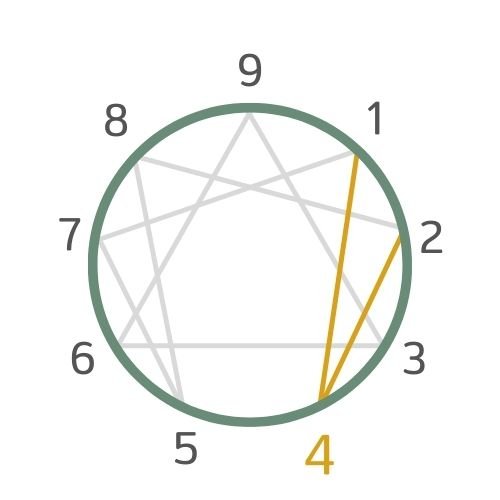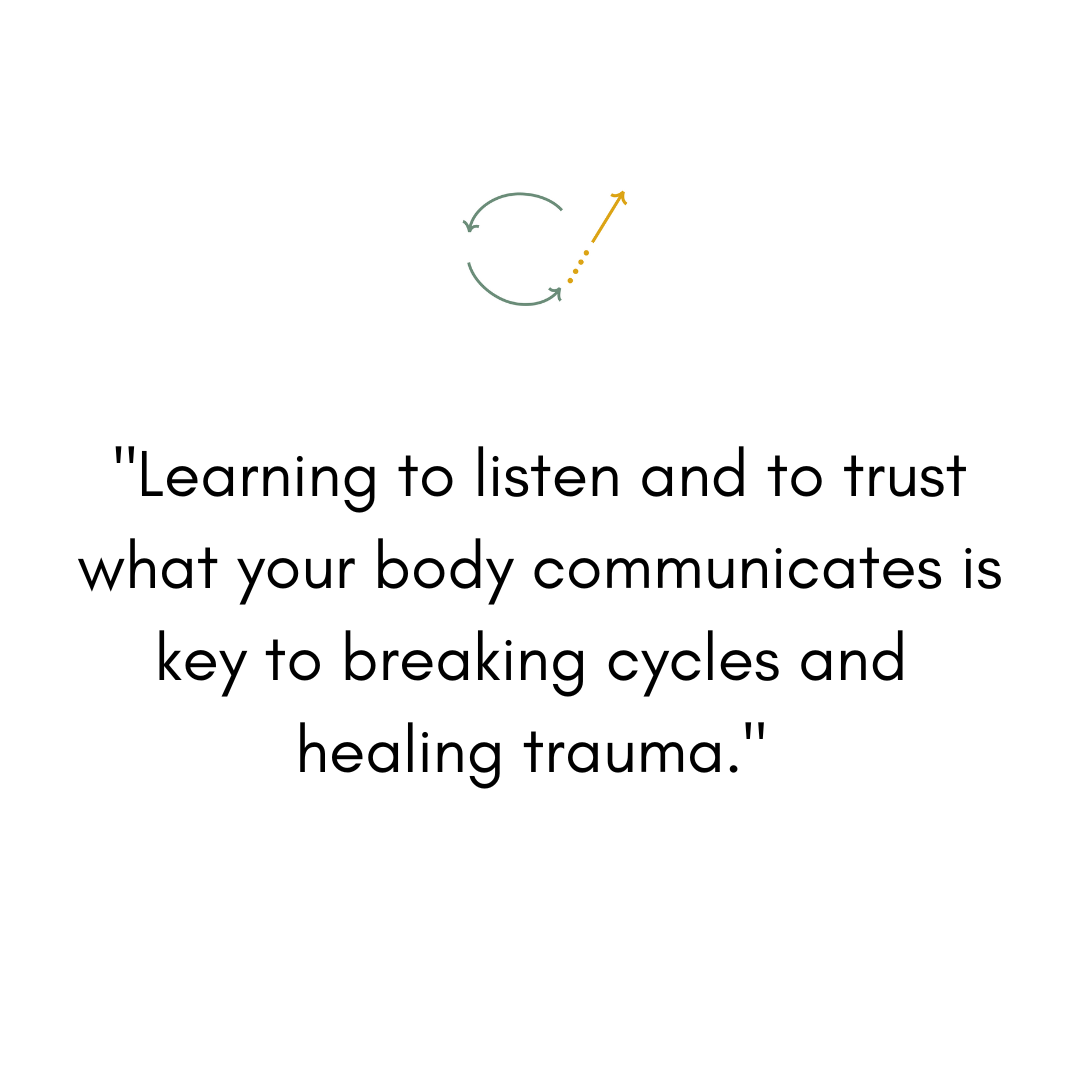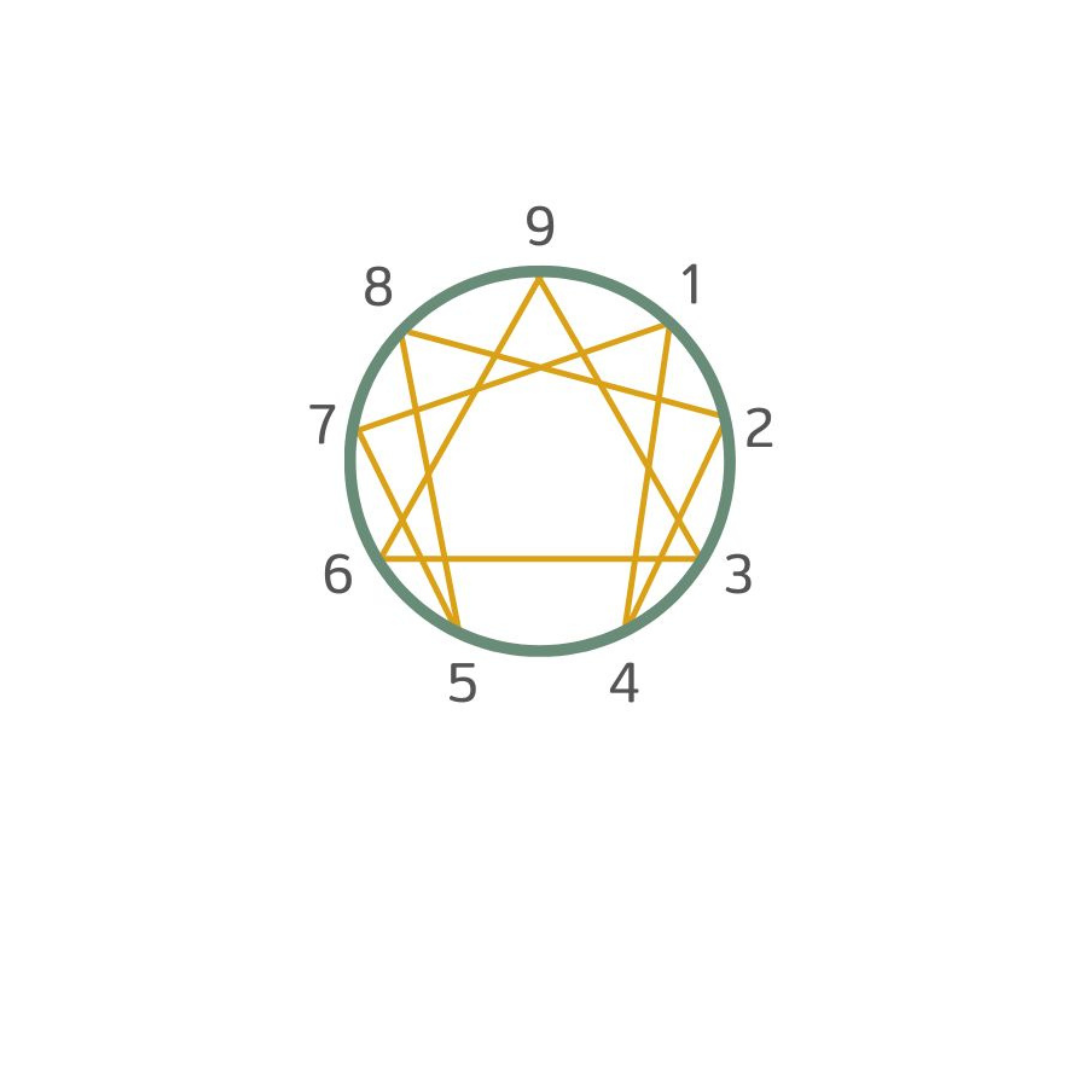
Discovering Growth: How Therapy with an Enneagram Specialist Can Transform Trauma and Anxiety
Understanding your Enneagram type can provide powerful insights into your behaviors, relationships, and emotional patterns. In this article, we explore why people of different Enneagram types might seek therapy, and how combining Enneagram wisdom with therapeutic support can help you navigate trauma, enhance self-worth, and cultivate healthier connections. Discover how this holistic approach can foster deep personal growth and transformation.

Enneagram for Therapists
The Enneagram is the self-growth system that just keeps giving. Your Enneagram type shows up in every area of your life from your relationships, to your mental health, to how you run your business. Knowing your Enneagram type gives you insight and awareness of how you get in your own way. It helps you understand what behaviors and beliefs act as barriers to running a business and being an effective leader.

How to Identify Your Enneagram Type: A Guide from an Enneagram Therapist
Figuring out your true Enneagram type can be challenging, especially with tests that often miss the mark. In this post, I explain why relying on test results alone can lead to confusion and how you can better identify your core type through self-reflection. Whether you’re new to the Enneagram or revisiting your type, I share how Enneagram therapy and coaching can help you navigate the deeper motivations behind your behaviors and foster lasting personal growth.

Enneagram Teachers and Spotting the Green Flags
Watching for green and red flags is an incredibly useful skill for everyone because we will all come into contact with problematic people. For people who have experienced abuse before, it’s an essential skill. Whether you have experienced abuse in your childhood, adulthood, or both (because the abuse cycle tends to keep repeating itself) you may not see or react to red flags. It’s very common for abuse survivors to not see problematic behavior as a red flag. When I work with survivors, we talk about the reasons for this and work together to strengthen the skill of spotting green and red flags.

Problematic Enneagram Teachers and How to Spot the Red Flags
I work with a lot of people who’ve endured narcissistic abuse. I’ve learned over the years how incredibly covert and subtle the abuse is when it first starts. Sometimes people see the signs of problematic behavior and convince themselves (or are convinced by others) that it’s not a big deal. This is especially true if other people don’t see the behavior as problematic or are already caught up in the abuse cycle themselves. Much of my work centers around breaking cycles of abuse. One of the ways to do this is by recognizing the red flags before it even starts. The Enneagram community is not immune to problematic people. In fact, in my experience, it can be very appealing to people who seek to have power over others. The Enneagram can be weaponized as a tool of manipulation just like many other spiritual systems.

Working with an Enneagram Therapist: How Type 7s Can Benefit from Therapy
Core Emotion: Fear (Externalizing),
Filter: There is a world of opportunity and so many possibilities
Energetics: Bouncy, wiry, upbeat, positive
Traits: Optimistic, friendly, fast intellect, hedonistic, run from negativity, hard to commit, busy
Values: Excitement, newness, ingenuity, humor
Childhood: Learned early on that they might get trapped in their emotions- this is a deep fear, often felt that they were “too much”
Not afraid to: Express joy, do what feels good, enthusiastically plan and express ideas
Hard for them to: Sit in negative emotions, do anything that makes them feel trapped, slow down

Working with an Enneagram Therapist: How Type 6s Can Benefit from Therapy
Core Emotion: Fear (Avoiding)
Filter: The world isn’t safe and I can’t trust
Energetics: Friendly, intellectually quick, alert, connected,
Traits: Trustworthy, down to earth, rebellious, skeptical, logical, fearful or fearless, paradoxical
Values: Honesty, integrity, loyalty, compassion, playing devil's advocate, skepticism
Childhood: Learned early on that the world is not safe and that they must be vigilant
Not afraid to: Show up in crisis (except they fear it) be courageous (except they fear it) express doubt
Hard for them to: Trust themselves or others, sit with doubt, sit with betrayal

Working with an Enneagram Therapist: How Type 5s Can Benefit from Therapy
Core Emotion: Fear (Internalizing)
Filter: I will be intruded upon and not safe, I don’t have enough stores to last
Energetics: Drawn back, observing, quiet, sensitive
Traits: Heady, withdrawn, isolated, shares mostly about areas of interest
Values: Privacy, boundaries, gathering information and data, submerging in interests and gaining expertise
Childhood: Learned early on that their privacy would not be respected and they must make themselves unneeded
Not afraid to: Dive into interests for hours and hours, tell you no, gather data
Hard for them to: Feel their emotions and yours, be too social for too long, feel that that they have enough of what it takes to do all of life, reach out to others and feel needy or needed

Working with an Enneagram Therapist: How Type 4s Can Benefit from Therapy
Core Emotion: Shame (Internalizing)
Filter: Sees what is missing (outside and inside of themselves)
Energetics: Deep, melancholy
Traits: Creative, expressive, deep feeling, compassionate
Values: Uniqueness, being real, beauty, darkness and authenticity
Childhood: Learned early on that in order to be worthy they had to be unique and special.
Not afraid to: Be creative, sit with big emotions and with darkness
Hard for them to: Not live in their emotions, accept that nothing is wrong with them and that they belong, be bored and stuck in routine / ordinary things, not feel shame when comparing self to others

Working with an Enneagram Therapist: How Type 3s Can Benefit from Therapy
Core Emotion: Shame (Avoiding)
Filter: Sees who and what has value
Energetics: Sharp, alert, clean/sleek aesthetic, energized
Traits: Motivated, charming, successful, persuasive, deceitful, pragmatic
Values: Quality, looking good, achieving, competence and proficiency
Childhood: Learned early on that in order to be worthy, they had to achieve and perform. It wasn’t okay to just be themselves.
Not afraid to: Climb to the top, jump in and get moving, set high goals and work to get there
Hard for them to: Do things they might fail at, be vulnerable, be patient, be misunderstood, tap into their true hearts desires, slow down

Working with an Enneagram Therapist: How Type 2s Can Benefit from Therapy
Core Emotion: Shame (Externalizing)
Filter: Sees where there is a need to help
Energetics: Penetrating eyes, cute, seductive
Traits: Compassionate, bubbly, friendly, giving, self-sacrificing, prideful
Values: Being needed, being kind, relationships, generosity
Childhood: Learned early on that it wasn’t okay to have needs, that they could be worthy only if they were of service to others and needed
Not afraid to: Offer help, give you the shirt off their back, cheerlead and support others
Hard for them to: Take care of themselves and recognize their own needs, say no to helping others, draw boundaries, tolerate someone being mad or upset with them, not be liked

Working with an Enneagram Therapist: How Type Ones Can Benefit from Therapy
Core Emotion: Anger (Internalizing)
Filter: Sees everything that isn’t right
Energetics: Upright, straight
Traits: Discerning, serious, orderly, high expectations for self and others, rule following (society’s OR their own)
Values: Integrity, fairness, quality and doing things the correct / best way
Childhood: Learned early on that it wasn’t okay to make mistakes and internalized that they are a mistake and must judge themselves harshly to fix it
Not afraid to: Do conflict if it serves a greater purpose, stand-up for what they believe is right, be discerning, see things in black and white ways
Hard for them to: Make mistakes, be flexible, adapt to unexpected change, see things in the gray, let loose and play

Working with an Enneagram Therapist: How Type 8s Can Benefit from Therapy
Core Emotion: Anger (Externalizing)
Filter: Sees that something terrible has happened and they must fix it
Energetics: Big, powerful, strong
Traits: Gregarious, big personality, ‘in your face’, motivator, protector, leader, comfortable / likes being in the spotlight, intense, work hard / play hard, lust for vices
Values: Directness, meeting goals, honesty, loyalty
Childhood: Learned early on that weakness is vulnerability and they must protect themselves and others. Often took care of or protected a parent, sibling, friend or pet.
Not afraid to: Tell you like it is, take action, be in conflict, take control
Hard for them to: Be vulnerable, let go of control, not feel responsible for protecting others they feel are weak, stop working (can be workaholics)

Working with an Enneagram Therapist: How Type 9s Can Benefit from Therapy
Discover how Enneagram therapy for Type 9s in North Carolina can support trauma healing, self-awareness, and personal growth. As a licensed therapist specializing in Enneagram trauma therapy, I help Type 9s heal from past trauma, navigate conflict, redefine their relationship with anger, and embrace their authentic selves. Whether you're in Asheville, Raleigh, Charlotte, or beyond, this therapy offers an empowering approach to emotional resilience, healthier relationships, and lasting healing.




Your Enneagram Type is How You Cope with Trauma
Discover how your Enneagram type responds to trauma and the unique coping strategies shaped by childhood experiences. This comprehensive guide explores trauma responses for each Enneagram type and offers insight into healing through trauma-informed therapy. Learn how identifying these patterns can help you break unhealthy cycles, connect with your authentic self, and build resilience. Whether you're seeking support for anxiety, emotional healing, or looking to understand your type's defense mechanisms, this article provides practical insights for those ready to begin their trauma recovery journey.

Cycle Breaking and How the Enneagram Can Help
The Enneagram acts as a mirror and a guide to help you understand how you get in your own way. While it can be painful to see, this clarity is liberating because it means that you can do something about it.